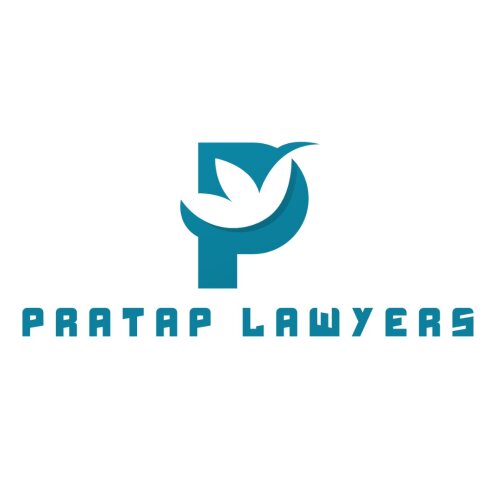Best Collaborative Law Lawyers in Suva
Share your needs with us, get contacted by law firms.
Free. Takes 2 min.
Free Guide to Hiring a Family Lawyer
List of the best lawyers in Suva, Fiji
About Collaborative Law in Suva, Fiji:
Collaborative Law is a method of alternative dispute resolution that focuses on resolving legal issues outside of the courtroom through cooperation and communication. In Suva, Fiji, Collaborative Law is a growing area of practice that aims to provide a more amicable and efficient way of settling disputes.
Why You May Need a Lawyer:
You may need a lawyer in Collaborative Law to ensure that your rights are protected, to help facilitate negotiations and agreements, and to provide legal advice and guidance throughout the collaborative process. A lawyer can also help you understand your legal rights and obligations, and assist you in reaching a fair and equitable resolution to your dispute.
Local Laws Overview:
In Suva, Fiji, Collaborative Law is governed by the Collaborative Law Act. This act outlines the procedures and requirements for engaging in collaborative practice, as well as the ethical standards that practitioners must adhere to. It is important to consult with a lawyer who is familiar with the local laws and regulations governing Collaborative Law in Suva, Fiji.
Frequently Asked Questions:
1. What is Collaborative Law?
Collaborative Law is a process where parties work together with their lawyers to resolve disputes and reach mutually beneficial agreements without going to court.
2. How does Collaborative Law differ from traditional litigation?
Collaborative Law focuses on cooperation and communication, whereas traditional litigation involves adversarial court proceedings.
3. What types of cases can be resolved through Collaborative Law?
Collaborative Law can be used to resolve various types of disputes, including family law matters, probate issues, and business disputes.
4. How long does the Collaborative Law process typically take?
The length of the Collaborative Law process varies depending on the complexity of the case and the willingness of the parties to cooperate. It can range from a few months to over a year.
5. Is Collaborative Law legally binding?
Yes, any agreements reached through the Collaborative Law process are legally binding once they are signed by the parties and filed with the court.
6. Can I still go to court if Collaborative Law does not resolve my dispute?
If the Collaborative Law process is unsuccessful, the parties may choose to pursue other legal avenues, such as mediation or litigation.
7. How much does Collaborative Law typically cost?
The cost of Collaborative Law can vary depending on the complexity of the case and the number of meetings required. It is typically less expensive than traditional litigation.
8. Do I need a lawyer to participate in Collaborative Law?
While having a lawyer is not required, it is highly recommended to have legal representation to ensure that your rights are protected and that you fully understand the legal implications of any agreements reached.
9. Are Collaborative Law proceedings confidential?
Yes, Collaborative Law proceedings are confidential, which means that discussions and documents shared during the process cannot be used in court if the process is unsuccessful.
10. How do I find a Collaborative Law practitioner in Suva, Fiji?
You can contact your local bar association or search online for a list of qualified Collaborative Law practitioners in Suva, Fiji.
Additional Resources:
If you are in need of legal advice or assistance in Collaborative Law in Suva, Fiji, you can reach out to the Fiji Law Society or the Collaborative Law Association for recommendations and resources.
Next Steps:
If you require legal assistance in Collaborative Law in Suva, Fiji, your first step should be to schedule a consultation with a qualified lawyer who specializes in Collaborative Law. During the consultation, you can discuss your case, legal options, and potential strategies for resolution. Remember to come prepared with any relevant documents and information to make the most of your meeting.
Lawzana helps you find the best lawyers and law firms in Suva through a curated and pre-screened list of qualified legal professionals. Our platform offers rankings and detailed profiles of attorneys and law firms, allowing you to compare based on practice areas, including Collaborative Law, experience, and client feedback.
Each profile includes a description of the firm's areas of practice, client reviews, team members and partners, year of establishment, spoken languages, office locations, contact information, social media presence, and any published articles or resources. Most firms on our platform speak English and are experienced in both local and international legal matters.
Get a quote from top-rated law firms in Suva, Fiji — quickly, securely, and without unnecessary hassle.
Disclaimer:
The information provided on this page is for general informational purposes only and does not constitute legal advice. While we strive to ensure the accuracy and relevance of the content, legal information may change over time, and interpretations of the law can vary. You should always consult with a qualified legal professional for advice specific to your situation.
We disclaim all liability for actions taken or not taken based on the content of this page. If you believe any information is incorrect or outdated, please contact us, and we will review and update it where appropriate.












